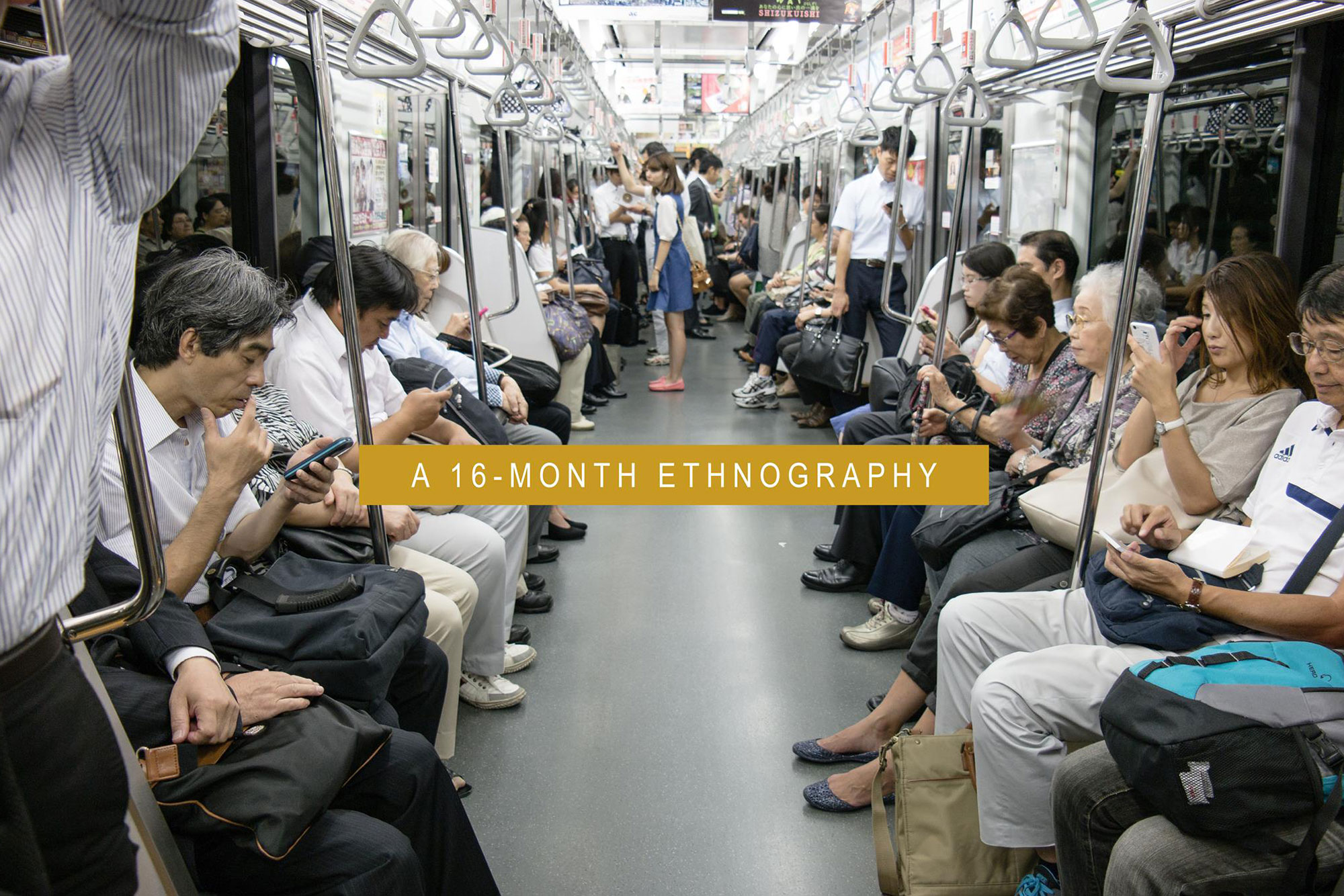Anthropology of Smartphones and Smart Ageing

The Anthropology of Smartphones and Smart Ageing is a multi-sited research project based at UCL Anthropology, funded primarily by the European Research Council.
The project employs a team of 11 anthropologists conducting simultaneous 16-month ethnographies in Ireland, Italy, Cameroon, Uganda, Brazil, Chile, Al-Quds, China, and Japan. Launched in October 2017, with fieldwork beginning in February 2018, the aim of this collaborative five-year project is to conduct comparative analysis of the impact of the smartphone on the experience of mid-life around the world and consider the implications for mHealth.
How has people’s relationship to ageing and health been affected by the global rise of the smartphone?
We will examine the experience of ageing for people at mid-life, that is those who consider themselves neither clearly young nor elderly, who are experiencing increased life expectancy and changed aspirations around mid-life. By focusing on smartphone use, particularly for health, we aim to examine the impact of digital media on this new ambivalent age. Smartphones present a potential increase in our capacities at a time of concern that ill health might lead to a loss of our capacities.
mHealth (mobile health) initiatives are increasingly addressing the needs of older populations, helping people to deal with sickness, disease, and frailty. Yet, while mHealth can potentially help those with limited access to professional care, it simultaneously threatens to bypass and undermine professional medical services.
Can ethnographic collaboration lead to more culturally-appropriate and effective mHealth interventions?
Our aim is to improve mHealth interventions with ethnography-led participatory design. For us, “smart” in “Smart Ageing” means recognising the creative appropriation of technology by people, not just top-down interventions. A three-way collaboration is envisaged between health professionals, our ethnographically-informed team, and our informants in the field.
We will combine an intellectual challenge of understanding the impact of new media on the contemporary nature of ageing with an applied challenge to use this knowledge to help make mHealth (mobile health) interventions more effective. Both the intellectual and applied challenges will depend upon sensitivity to the forms of cultural diversity uncovered by our comparative ethnographic approach.
What are the outcomes for anthropology and beyond?
This exercise in engaged anthropology will inform our intellectual advances in the field of digital anthropology which, so far, has not considered the smartphone from a global comparative perspective. Our intention is to write a series of open access monographs and collaborative volumes, aimed at both anthropological and wider audiences alike. We will also share our findings on this website, in films, and through accessible teaching materials.
Both the intellectual and applied components will be shown to depend upon sensitivity to the forms of cultural diversity uncovered by our comparative ethnographic approach. The intention is to produce a series of popular monographs, comparative work, film and accessible teaching materials on the same lines as the recently completed Why We Post project.



